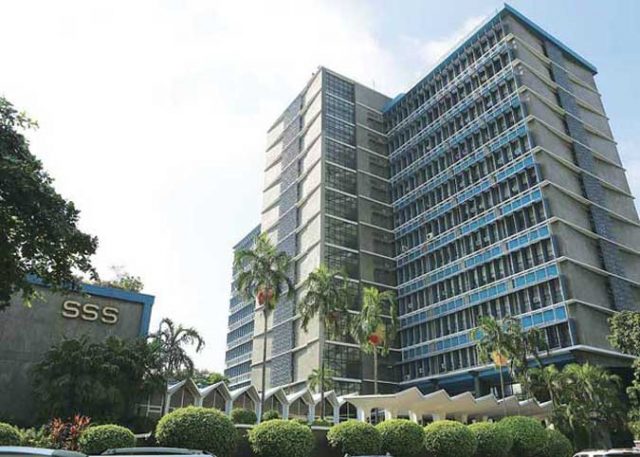AMAZON.COM, Inc. will buy MGM, the fabled US movie studio home to the James Bond franchise, for $8.45 billion, giving it a huge library of films and TV shows and ramping up competition with streaming rivals led by Netflix and Disney+.
The deal aims to bolster Amazon’s television-focused studio with new and historic filmmaking from MGM, which has snapped up lucrative series including Rocky and Tomb Raider since its founding in 1924.
Streaming video helps the world’s largest online retailer draw people to subscribe to Prime, a club with fast shipping, and to shop more once they’re members. Privately-held MGM, or Metro Goldwyn Mayer, also owns the Epix cable channel and makes popular TV shows including Fargo, Vikings, and Shark Tank.
Jeff Bezos, Amazon’s founder, laid out the rationale for the deal at the company’s annual shareholder meeting on Wednesday.
“MGM has a vast, deep catalog of much beloved intellectual property (IP),” he said. “With the talented people at MGM and the talented people at Amazon Studios, we can reimagine and develop that IP for the 21st century.”
Mr. Bezos said it was “premature” to name Amazon Studios as the fourth pillar of the company after its seller marketplace, cloud division, and Prime, but it was working toward that milestone. More than 175 million Prime members watched content on Amazon in the past year, and streaming hours were up 70%, he said.
July 5 — the day Amazon was incorporated in 1994 — will be the date long-time cloud chief Andy Jassy takes over as CEO, Mr. Bezos said.
Amazon’s Prime Video faces a long list of rivals including Netflix, Inc., Walt Disney Co.’s Disney+, HBO Max, and Apple, Inc.’s Apple TV+. The companies have increased spending and expanded in international markets, capturing the pandemic-led shift to binge-watching shows online.
To stay competitive, Amazon has also courted fans of live sports and picked up licenses to stream games, boasting a long-term deal with the National Football League that was estimated to cost about $1 billion per year.
The proliferating streaming services are scrambling for content libraries and brands they can expand. Analysts have said this is a big motivation for another round of consolidation of media properties after a brief hiatus during the pandemic.
“With new entrants to streaming from all the major studios and TV networks, Amazon has to increase its commitment to video or risk losing engagement,” said Jim Nail of research firm Forrester.
Underscoring the trend toward consolidation, AT&T, Inc. announced a $43-billion deal last week to spin out its WarnerMedia business and combine it with Discovery, Inc., one of the most ambitious yet in the streaming era.
Amazon’s Hollywood studio purchase is a first for a big US tech company and could spark further interest in Silicon Valley, a source familiar with the matter said.
The acquisition is Amazon’s second-biggest after Whole Foods Market, which it bought for $13.7 billion in 2017.
At almost $9 billion, the lofty price is about 37 times MGM’s 2021 estimated EBITDA — or almost triple the enterprise value-to-EBITDA multiple that Discovery’s deal implied for AT&T’s content assets — according to Reuters Breakingviews.
At the same time, Amazon posted its fourth consecutive record quarterly profit in April.
MGM started a formal sale process in December, when it was estimated to be worth about $5.5 billion. Morgan Stanley and LionTree advised MGM on the deal.
The deal will provide fuel for the Seattle company’s critics in Washington who complain it is already too big and powerful, but experts said the deal poses few classic antitrust concerns.
LUCRATIVE FRANCHISE RIGHTS
Amazon has picked up Academy Awards over the years and slowly moved from art-house fare toward content with wider appeal. The MGM acquisition accelerates that move, giving it rights to James Bond, one of the most lucrative franchises in film history that’s earned nearly $7 billion at the box office globally, according to MGM.
Other classic films in MGM’s library include RoboCop, Moonstruck, and The Silence of the Lambs.
The potential to mine this intellectual property, by making new content based on popular characters, will help Amazon draw viewers to Prime, two former Amazon executives told Reuters.
MGM also licenses content for video games, which could benefit Amazon’s development efforts in that area.
Still, Amazon efforts to profit off the library won’t be easy, or cheap.
In many cases, MGM’s content is tied up in multi-year deals with television networks, the former Amazon executives said. Amazon cannot simply air MGM’s reality show The Voice, for instance, which contractually is in the hands of NBC.
Bringing a new installment of the James Bond saga online instead of in theaters would be a particularly difficult task, the sources said. The terms under which MGM acquired the franchise leave control in the hands of the Broccoli family, the Bond films’ producers.
Barbara Broccoli and Michael G. Wilson of Eon Productions said in a statement, “We are committed to continuing to make James Bond films for the worldwide theatrical audience.”
News of the acquisition followed quickly on the upcoming return of Jeff Blackburn, Amazon’s former senior vice-president overseeing content and M&A, who had left early this year.
Incoming Amazon CEO Mr. Jassy had particular trust in Mr. Blackburn after decades at Amazon together, hoping he might shepherd a complicated merger, the sources said. — Reuters












